Changes to the Fair Debt Collection Practices Act (FDCPA) have made it possible for debt collectors to contact consumers via text message, email, and social media. With these changes come new doors of opportunity, putting consumers more in control over how they manage their debt and communicate with collectors and agencies.
But third party companies with accounts receivable face a new slew of challenges and compliance regulations that come with these changes, which are set to go into effect on November 30, 2021.
What will compliant texting, email, and social media messages involve? What other changes to the FDCPA should you be aware of going forward?
Here’s what you need to know about compliant electronic messaging in debt collection and how you can prepare for the changes ahead.
Understanding the Role of Consumer Consent
Under the new FDCPA rulings, third-party debt collectors can send an unlimited number of text messages, emails, and social media messages to a consumer.
However, they must provide instructions to opt-out of text messaging, email, and social media messages in every electronic communication. Consumers can report electronic messages that don’t include this opt-out feature on and after the proposed December 1 start date.
That’s not all. Third parties can only send text messages and emails at reasonable times, like during the workday or before 9 PM. Again, text messages and emails must include an opt-out feature.
When it comes to social media, third parties can only send debtors private messages (including the opt-out feature). They cannot post anything publicly on a person’s social media page or account.
We should also note that there will be new rules surrounding phone calls. Collectors can call a consumer once a day 7 times in a rolling 7-day period; however, if they speak to the consumer, they cannot call again for at least one week unless authorized to follow up by the consumer.
Similar to text messages and emails, third parties can only call consumers at reasonable times. They must also comply if a consumer requests they stop calling in writing.
New Rules on Reporting to CRAs
Although there is still time to adopt compliant electronic messaging as part of your accounts receivable strategy, there is another major change that may affect your debt collection practices.
Sometime in the next year, debt collectors will no longer be able to furnish consumer information to consumer reporting agencies without taking a series of preliminary measures first.
Specifically, debt collectors must communicate with consumers by telephone, letter, or electronically AND allow a reasonable amount of time for the consumer to respond BEFORE they reach out to a CRA.
With that said, communicating with consumers is going to hold even more weight in the coming months and years. While telephone and letter correspondence will continue to be viable communication methods, text messaging, email, and social media correspondence are likely to become more commonplace because of this new CFPB ruling.
Make Compliant Electronic Messaging Part of Your AR Strategy
The FDCPA changes were announced at the end of 2020, in an effort to mitigate aggressive debt collection practices and give consumers more options when it comes to communicating with third party debt collectors.
The collective shift from traditional communication methods, like telephone and letters, to compliant electronic messaging has been slow to take off, and may not go into full effect until later in 2022. However, that doesn’t mean you should wait to change your accounts receivable strategy accordingly.
Here at Kinum, Inc, we’re prepared for the compliance changes headed our way – and our debt collection system already integrates many of the practices discussed in this article. To learn more about how the Kinum Complete System can optimize your accounts receivable strategy and secure your compliance, contact us today!






